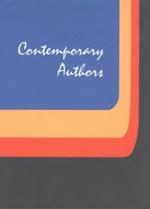|
This section contains 7,374 words (approx. 25 pages at 300 words per page) |

|
SOURCE: “Husserl's Phenomenological Idealism,” in The Journal of Philosophy, Vol. XXVII, No. 14, July 3, 1930, pp. 365-80.
In the following essay, Hook presents an expository critique of Husserl's “Phenomenological Idealism.”
Husserl's Formale und transzendentale Logik1 marks the end of the most promising movement in recent German philosophy. Starting as a reaction to the psychologized logic of the nineteenth century, it succeeded in reviving the logical realism which had been obscured by too much preoccupation with the empirical descriptions of knowing and gave a modernized version of the Platonic doctine of the autonomy of the purely logical or ideal realm of meanings. All of Husserl's earlier writings with the exception of the very first were not devoted to logic, but rather to prolegomena of logic. The only book on strict logic produced by a member of his school is Pfänder's Logik.2 But this last is not very much different from...
|
This section contains 7,374 words (approx. 25 pages at 300 words per page) |

|


